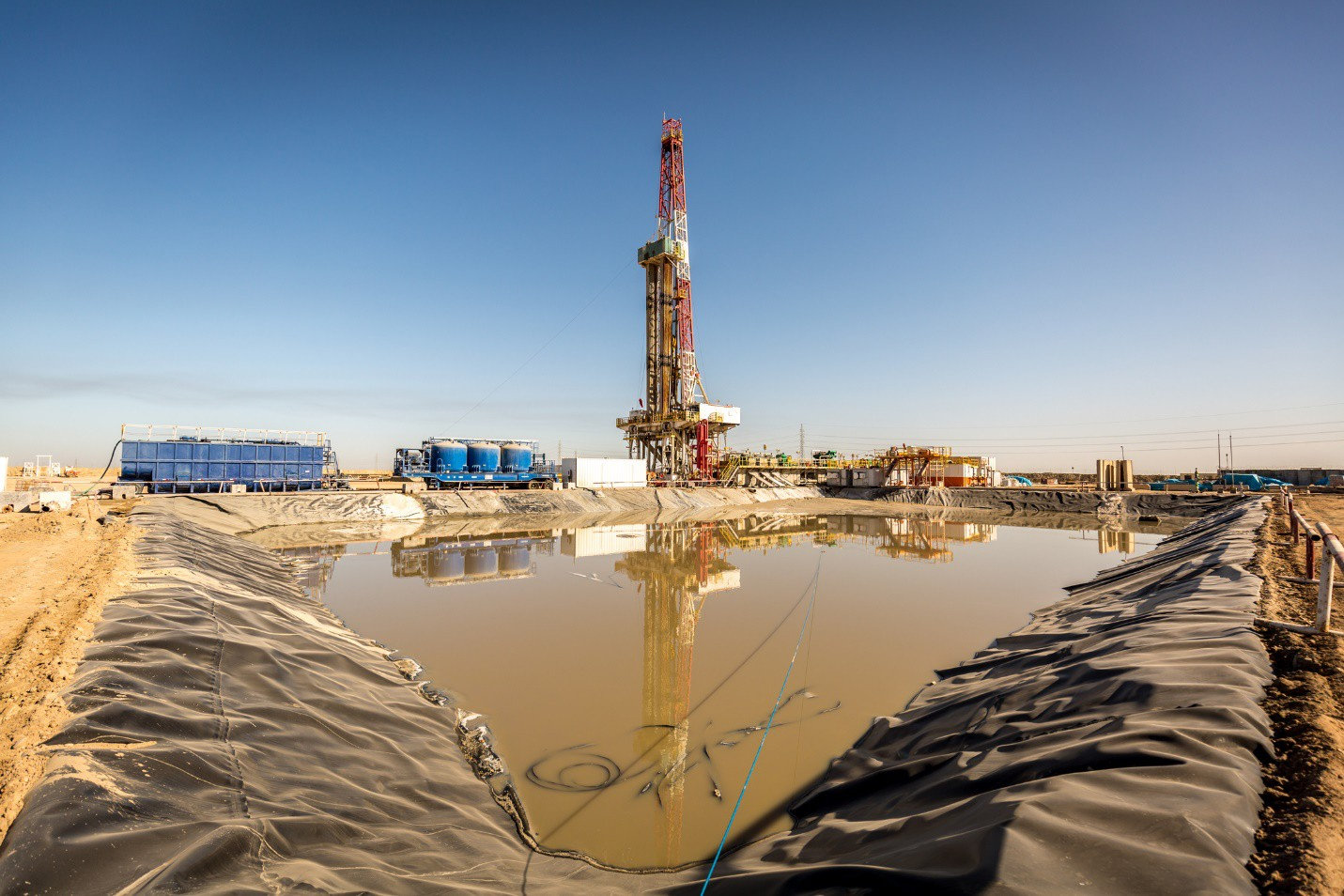OIL & GAS PRODUCED WATER TREATMENT
TRANSFORMING MANAGEMENT OF PRODUCED WATER TREATMENT
The extraction of oil and gas, both through traditional methods and fracking, involves the use of large volumes of water that become contaminated through contact with hydrocarbons, drilling fluids, and naturally occurring contaminants in the substrate.
This contaminated water, known as produced water, requires proper treatment before it can be safely reintegrated into the watershed or used for various purposes, such as livestock watering, aquifer storage, irrigation, steam-flow augmentation, and municipal and industrial applications.
Clean-Flo International, with nearly half a century of experience in biological produced water treatment, offers a comprehensive solution to the challenges of produced water management in the oil and gas industry.
By combining advanced oxygenation technology with carefully selected biological treatments, Clean-Flo consistently delivers industry-leading results, ensuring that produced water is restored to approved regulation levels.

CLEAN-FLO’S BIOLOGICAL APPROACH TO WATER TREATMENT
At the heart of Clean-Flo International’s approach is the RADOR (Rapid Acting Dissolved Oxygen Remediation) system, a continuous solution designed to lower levels of dissolved metals like manganese and iron, normalize pH levels, and prevent sludge buildup and surface matting.
The RADOR system introduces oxygen into the produced water through industry-leading diffusers, initiating a series of beneficial changes that stem from higher dissolved oxygen levels.
Increased dissolved oxygen helps to eliminate sulfide-reducing bacteria, which in turn reduces the presence of hydrogen sulfide and its associated odor, a common issue in fracking lagoons. As dissolved oxygen levels rise, the pH of the water begins to stabilize, further optimizing conditions for the removal of hydrogen sulfide.
Additionally, the high levels of dissolved oxygen promote the oxidation of dissolved metals, such as manganese, arsenic, and iron, converting them into less soluble forms and causing them to precipitate out of the water.
This process enhances the effectiveness and efficiency of fracking water treatments, ultimately leading to reduced remediation costs.
THE IMPORTANCE OF WATER TURNOVER IN PRODUCED WATER MANAGEMENT

Another key benefit of Clean-Flo’s RADOR system is the constant turnover of water.
The continuous oxidation process prevents the accumulation of sludge and the formation of surface matting. The columns of fine bubbles generated by the RADOR diffusers not only drive water turnover but also contribute to increased evaporation rates. As the fine bubbles reach the surface, they help to remove humid air at the water’s surface, further enhancing evaporation.
To achieve even greater and faster results, Clean-Flo often employs bioaugmentation techniques, such as the use of enzymatic formulas, in synergy with oxygenation. These biological treatments are particularly effective in reducing hydrocarbon levels in produced water.
DESIGNING OXYGENATION SYSTEMS FOR FRESHWATER FRAC PONDS
In addition to its expertise in treating produced water, Clean-Flo International has extensive experience in designing aeration systems for freshwater frac ponds.
These systems are designed to maintain high water quality, increase dissolved oxygen levels, reduce mosquito growth, and prevent the freezing of water during winter months. By incorporating Clean-Flo’s services, oil and gas companies can effectively address issues such as low dissolved oxygen levels, low pH levels, and high levels of dissolved metals in a cost-effective manner.
As the oil and gas industry faces increasing pressure to minimize its environmental impact and comply with stringent regulations, Clean-Flo International’s innovative solutions offer a reliable and efficient means of managing produced water.
By leveraging the power of advanced oxygenation and biological treatments, Clean-Flo enables oil and gas companies to restore produced water to approved regulation levels, facilitating its safe reintegration into the watershed or its use in various beneficial applications.
Download the Lake Management ACTION Plan E-Book
Ready to explore how oxygenation can transform your lake? Download Clean-Flo’s Lake Management ACTION Plan E-Book to learn more about our innovative solutions, real-world results, and how we can help restore and protect your lake.
